Lemon balm tincture made from fresh lemon balm, extracts all of its impressive health benefits and it is easy and convenient for daily use.
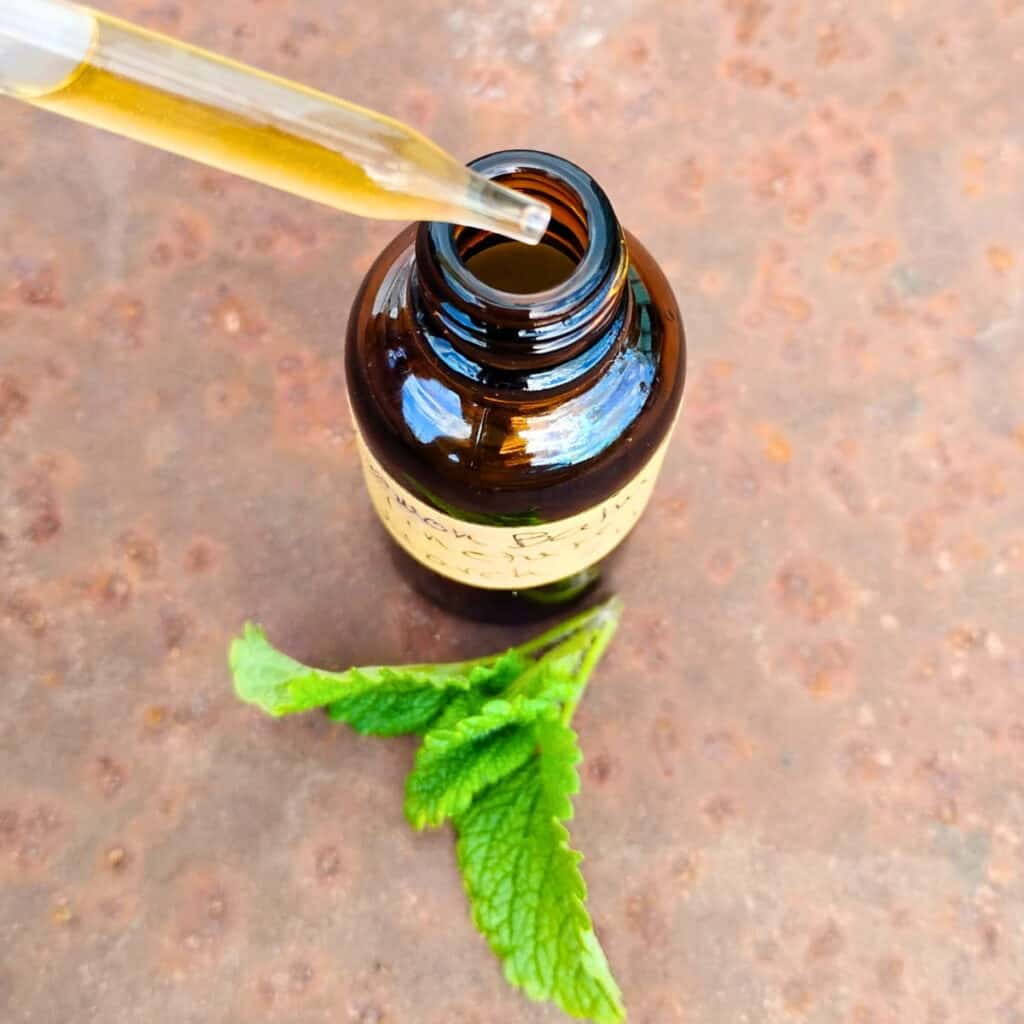
This post contains affiliate links, as an Amazon associate, I make a small commission at no extra cost to you on qualifying purchases. See my full disclosure here.
Lemon balm tincture made from freshly harvested lemon balm is the perfect way to extract all of lemon balm’s benefits. In tincture form, lemon balm can be used so easily even when you’re away from home. No need to make a tea. And you can even use it on a cold sore if you don’t have a salve. It’s effective, convenient, and it is super easy to make from home grown lemon balm.
Learn how to grow lemon balm, how to harvest it and how to make a tincture. And discover the many benefits and uses for lemon balm tincture. Let’s dive into it!
If you like this lemon balm tincture, you might also be interested in making a lemon balm salve for cold sores!
How To Make Lemon Balm Tincture From Fresh Lemon Balm
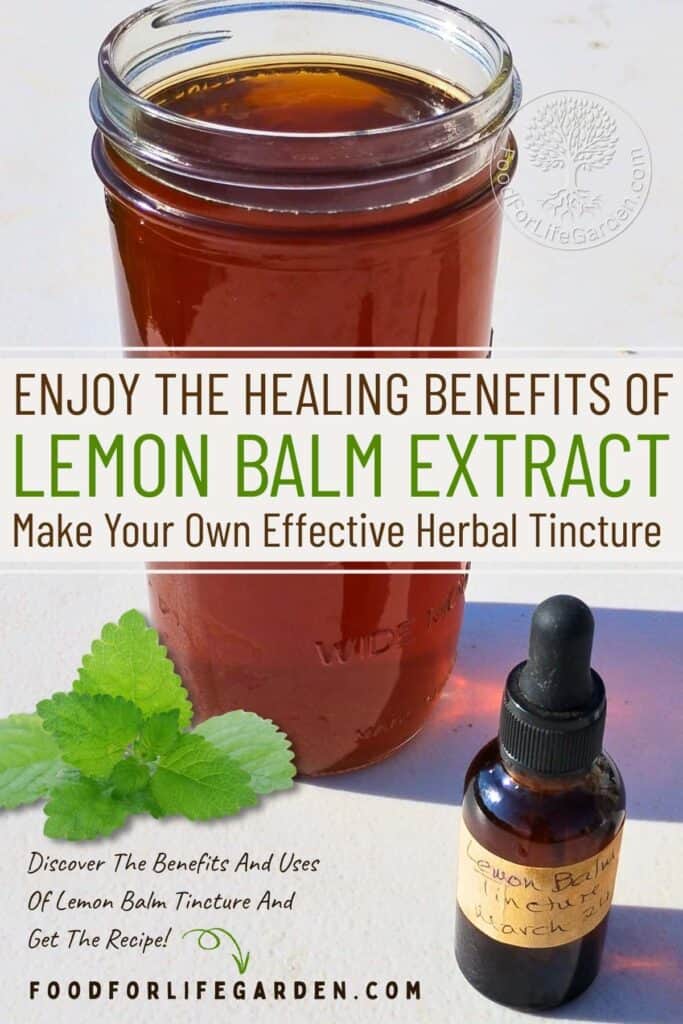
The best tincture is made from the freshly harvested, organically grown lemon balm. By tincturing it fresh, lemon balm will retain the essence of all those volatile oils that would get lost in the drying process.
So even if you use lemon balm to make a tea, the tincture can put more flavor and healing benefits into your tea than just the dried herb would.
Lemon balm has a lemony scent and flavor, and honestly, it makes the best tincture ever. It’s so tasty, you’ll look forward to taking it.
The freshest herb is, of course, cut in your garden and brought home to use straight away. So let’s start by growing some lemon balm:
How To Grow Lemon Balm
Lemon balm (Melissa officinalis) is a member of the mint family (Lamiaceae). It is a perennial plant that grows in an expanding clump, but spreads mostly by seeds.
There are four ways you can start growing lemon balm in your garden. In all cases, be warned! It’s innate purpose is to multiply and it’s very good at it! Lemon balm grows in a clump that will get bigger over time. It won’t run like peppermint or nettle, but it will expand, so keep that in mind when you give it a spot in your garden. However, it loves to grow from seeds, which can cause it to spread all over.
You can control it by trimming it a few times during the season so no flowers can go to seed. Mulching around your lemon balm plant will also help keep the seeds that fall from germinating. But it can pop up elsewhere from wind borne seeds.
One of the great benefits of lemon balm is its bug repelling property. So if it ends up growing throughout your garden, you might just have less pesky bugs bothering you, if you keep brushing up against it. And you can rub it on your skin while you garden to keep those mosquitoes from attacking.
01. Growing Lemon Balm From Plants
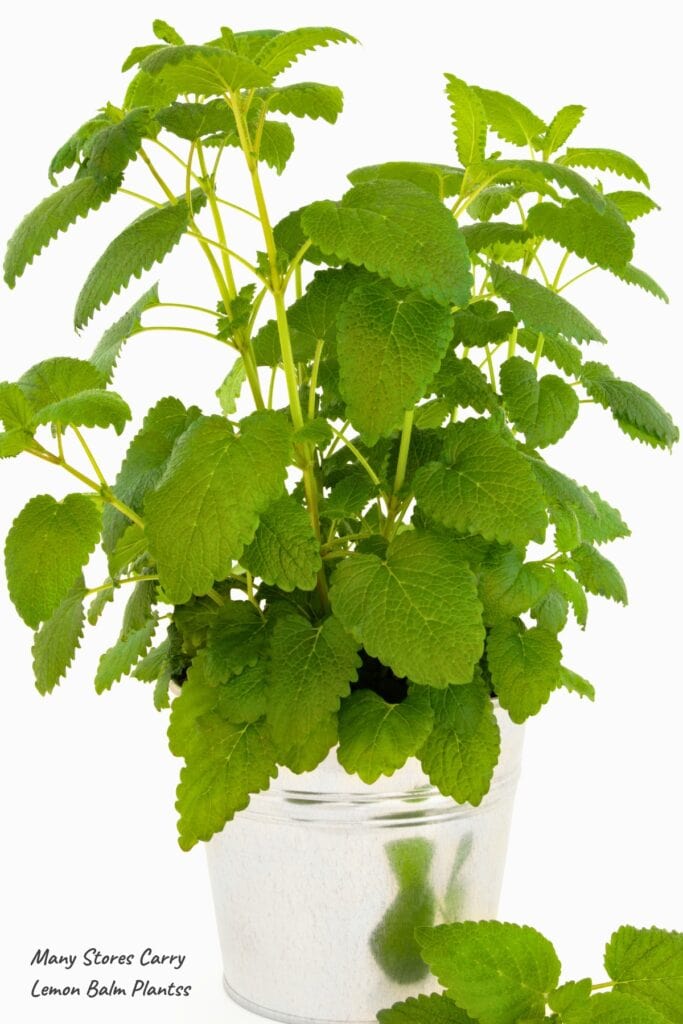
Young lemon balm seedlings growing in pots are usually easy to find in nurseries, at plant sales, at farmer’s markets, or even in grocery stores. Just take the plant home, and if it’s not been hardened off, let it acclimate for a few days by placing it in dappled shade with partial sun outside.
Before transplangint, give the plant a good soaking for a half hour or so with a little diluted fish emulsion to minimize transplant shock. Then just dig a hole to fit it, and plant your lemon balm straight into it. It will grow quickly and get bigger over the next several years.
02. Growing Lemon Balm From Cuttings
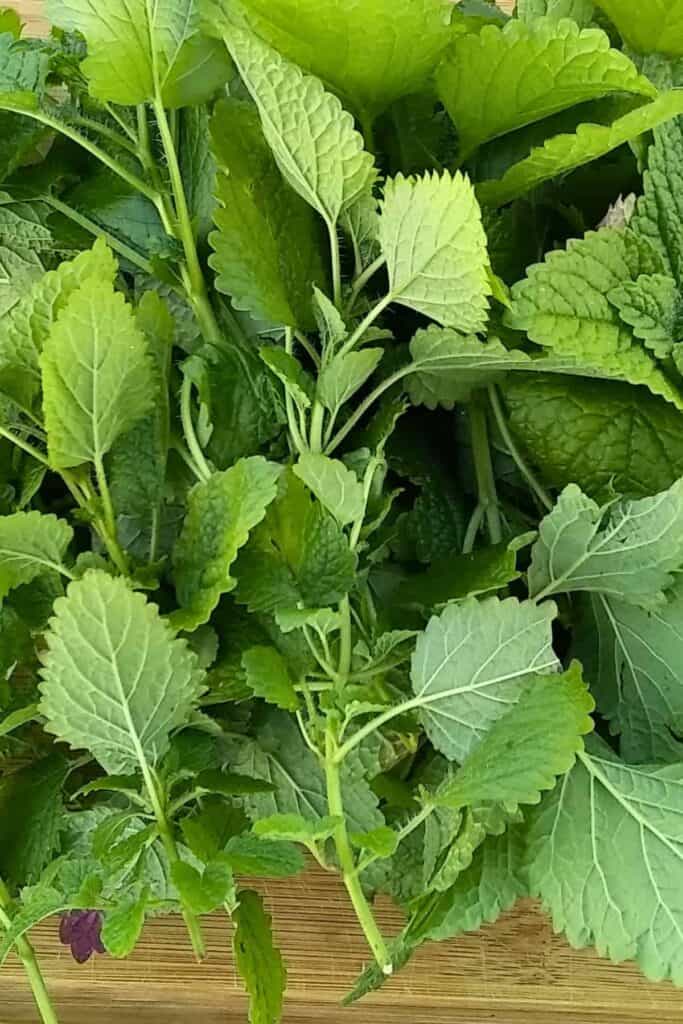
If you have a friend or neighbor that has a lemon balm plant, you could ask if you can take a few cuttings to grow your own plant from. I doubt that anyone will say no. Lemon balm is super prolific and it’s easy to have abundant lemon balm to share.
Take about 6 inches of stem cutting that looks healthy and vigorous. Remove the bottom 2 inches of leaves. Prepare a seedling pot by filling it with moist peat moss, mixed with some perlite or vermiculite. A light, spongy potting soil is fine too. Stick your stem into the soil.
Cover the pot with a plastic bag to act as a humidity dome. Keep the soil moist but not wet. And now wait for the roots to grow in a few weeks. Once it has some roots, you can plant it outside in your garden.
03. Growing Lemon Balm From Division
If someone you know is dividing their lemon balm, because it has grown too large, offer to relieve them of a little section. Plant it straight in your garden. Give it a bit of fertilizer like fish emulsion, to help get it off to a good start.
Dividing a lemon balm patch is a good way to keep the plant growing healthy and vigorous and to add more patches of lemon balm to your garden if you like.
04. Growing Lemon Balm From Seed
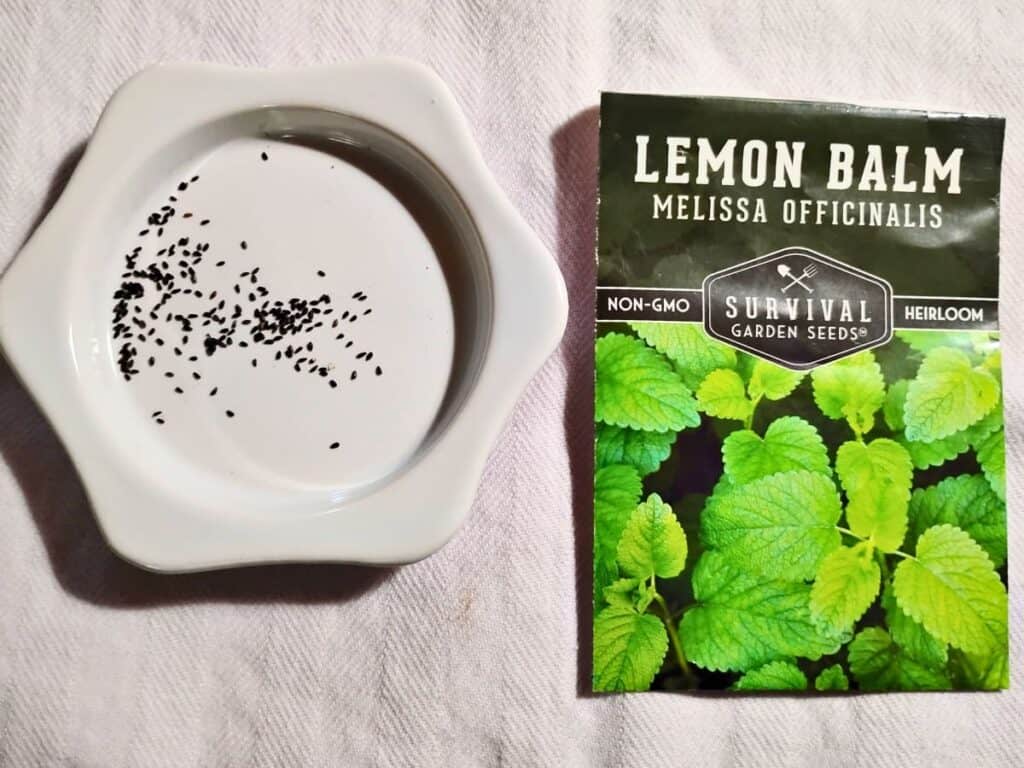
You can easily get lemon balm seed in stores that sell seeds, or you can order them from most any seed supply company that sells herbs, such as True Leaf Market or on Amazon.
I like to start it indoors, about 6-8 weeks before the last frost date. Just take a 2-3 inch pot, fill with moist seed starting mix and sprinkle a few seeds on it. Press the seeds into the soil so they make good contact. You can very lightly cover them, but I don’t. Be sure to keep the surface moist until they germinate.
Cover the pot with a small plastic baggie and set it in a warm spot till germination. You can use a heat mat if your home is on the cool side, around 70 degrees is ideal. Once it germinates, keep the pot in a bright window without direct sun or under grow lights for 12-16 hours a day.
After the last frost, harden your plants by setting them in a place with dappled shade for a few hours and increasing time outside each day for a week. Then plant into your garden.
In all cases, mulch the area around your plant well to keep moisture in. Lemon balm likes partial or dappled shade but it can take full sun. I like to plant it where it gets morning sun but is a bit shaded from the hot afternoon sun.
Benefits of Lemon Balm Tincture
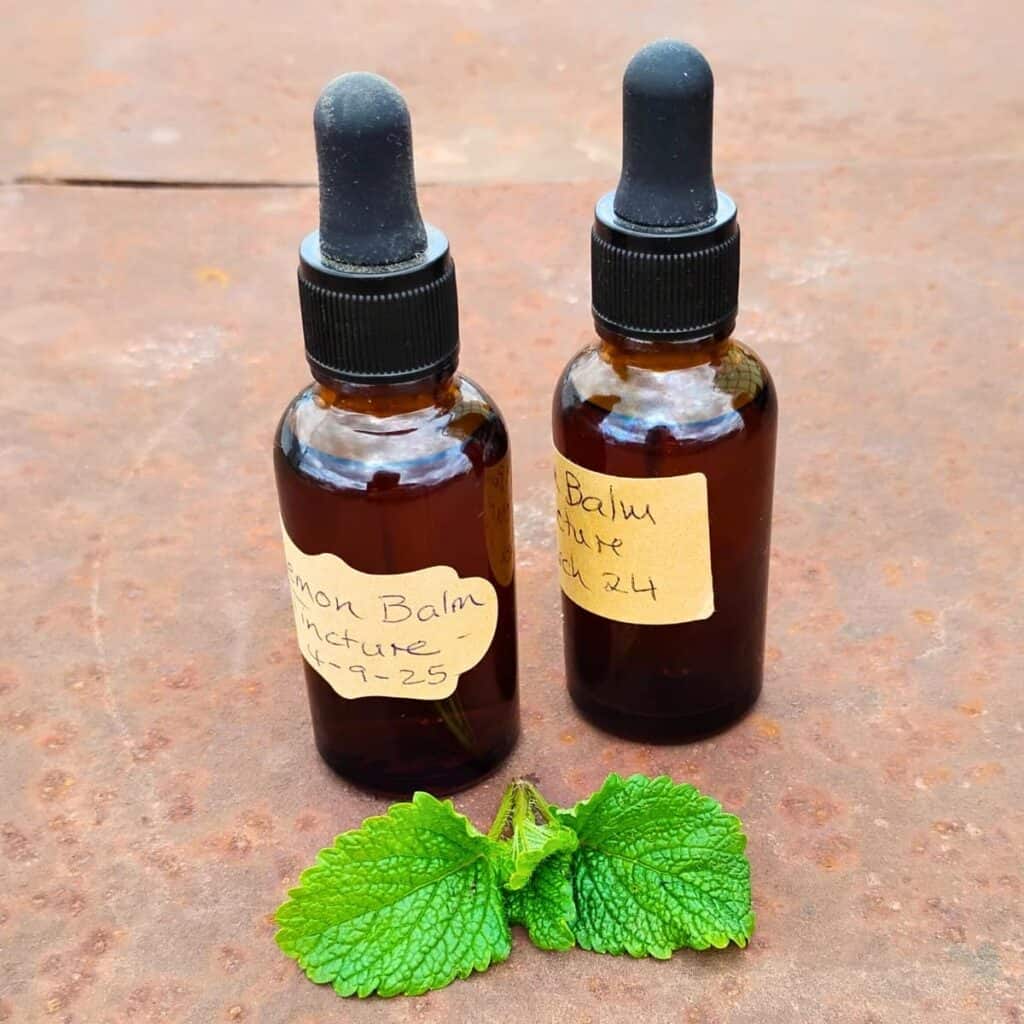
I have a whole post dedicated to lemon balm benefits. There is a lot of detail there and the many ways you can use lemon balm from specific tea blends, to bug spray, to salves for cold sores and other ailments. Here we’ll discuss the benefits of the tincture form specifically.
Lemon balm tincture has a lot of advantages over using the dried herb in a tea. While we have to dry the herb to preserve it or to make an oil infusion, when you use alcohol as a solvent, this is not necessary. In fact it is beneficial to keep the herb fresh in this case. Here is why.
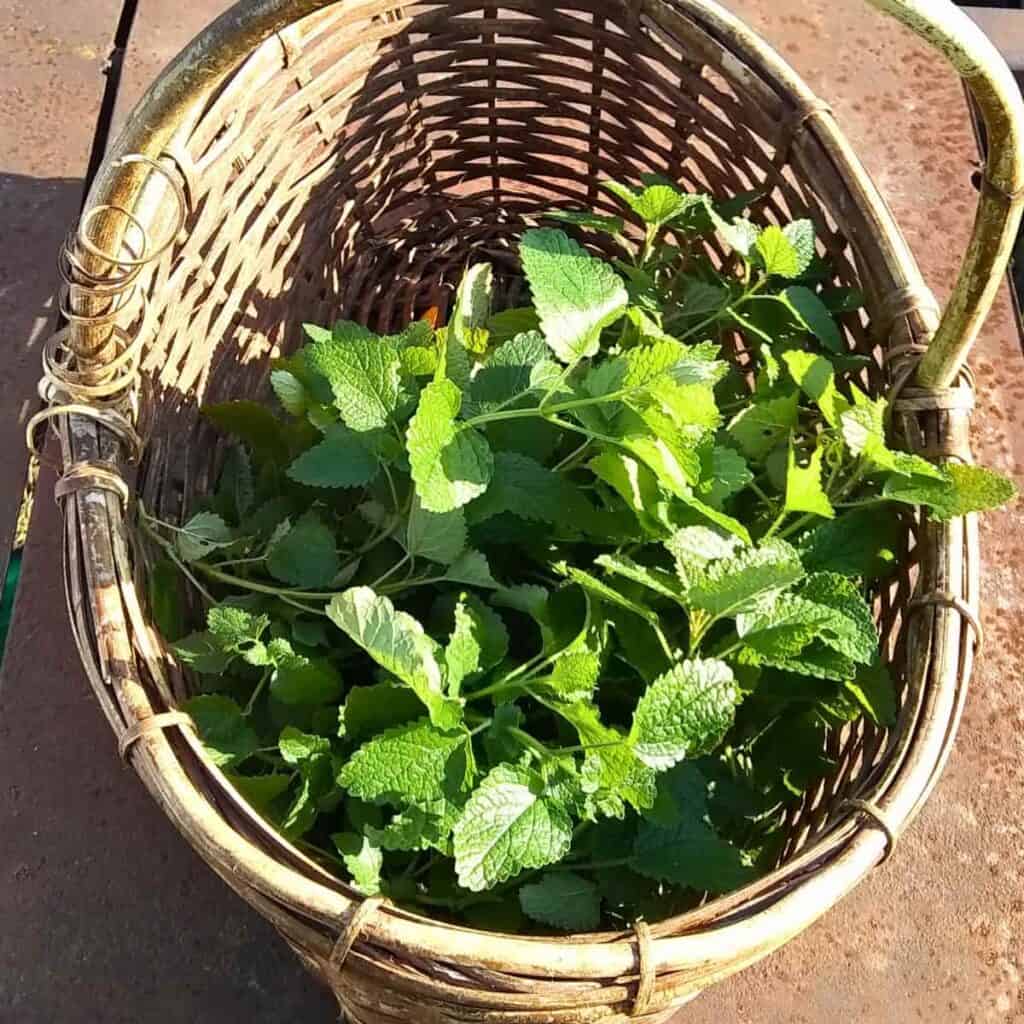
Fresh lemon balm has lots of beneficial volatile oils that dissipate during the drying process. By tincturing the fresh picked herb we can capture all those properties before they disappear. Another reason is that we will be able to extract the water solulable properties such as vitamin C that are in fresh lemon balm. They would be lost as well after the herb is dried.
Lemon balm has an impressive list of benefits as you can discover in my related lemon balm salve post. In tincture form it is easy to take throughout the day and it is more potent than a tea from the dried herb would be. Here are a few health benefits of lemon balm that this tincture might address perfectly.
Lemon Balm’s Medicinal Properties
Active constituents in lemon balm include the volatile oils citral and citronellal, as well as flavonoids and polyphenols, such as catechin and rosmarinic acid, tannins, bitters, vitamin C, calcium, magnesium, and resins.
Properties of Lemon Balm
- Aromatic
- Relaxing nervine
- Antiviral
- Anti-fungal
- Antibacterial
- Antioxidant
- Relaxing diaphoretic
- Aromatic digestant
- Antispasmodic
Traditional And Modern Uses
- Anxiety
- Nervousness
- Stress
- Viral infections
- Bug bites
- Nervous digestion
- Fevers
- Coughs
- Skin irritations
Note this important modern discovery: Some studies suggest that lemon balm can cause a marked reduction of oxidative stress and DNA damage when taken as a tea during radiation treatments and x-rays. Drink it for 30 days, twice a day, starting before an x-ray and continuing on after. And you can also use the tincture in place of the tea.
One of lemon balms important benefits includes support for the heart. And as such it is used to prevent or improve medical conditions such as heart disease, but also the emotional ones like heart-ache.
With its strong antiviral, antibacterial, and anti-fungal properties, Lemon balm is a powerful ally that is used to combat viral and bacterial infections as well as candida and other fungal infections.
It’s antiviral and anti bacterial properties might help fight colds and infections. And if taken with a feverish cold or flu, it might help induce sweating to break the fever.
If there is congesion, lemon balm tea or tincture can be used in a steam bath to help open nasal and lung passages. When taken as steam bath, the antiseptic oils in lemon balm might help heal sinus infections. Place a dropperful of tincture into hot water and lean over it to breathe in the steam. Cover your head with a towel to keep the steam from escaping.
Digestive And Gut Healing Properties
Lemon balm has contains terpenes and eugenol. These can have a positive effect on the digestive muscles to help relief spasms, bloating, colic and indigestion by relaxing digestive muscles.
Anti-inflammatory properties in lemon balm could be beneficial for reducing inflammation in the gut. And lemon balm may have prebiotic effects which can help create a healthy gut microbiome by promoting beneficial gut bacteria.
Lemon balm’s stress reducing properties may exude a positive impact on gut health indirectly, because stress can cause digestive issues.
Calming And Anti-depressant Properties
Lemon balm tincture can help reduce the feeling of overwhelm and anxiousness. It is used to stay calm and focused instead getting a frazzled case of the nerves and anxiety when facing an exam for example.
Lemon Balm is traditionally used for anxiety relief and for its calming properties on the nervous and digestive system. It has a reputation for relieving stress and anxiety, melancholy, depression and insomnia. It can help with SAD and nervous tension.
Lemon balm is great to use for children too, because of it’s gentle nature. It might help calm them down when they are hyperactive, suffer with ADHD and ADD.
Especially when combined with valerian, lemon balm can help promote restful sleep and might reduce recurring nightmares. And combined with chamomile, it can serve as a calming and uplifting formula to promote happy feelings.
Pain Relief
Lemon balm might help with headaches. Lemon balm salve on your temples and forehead can provide cooling headache relief. At the same time taking some tincture internally might help decrease tension in the body and help relieve a tension headache.
Lemon balm can block pain signals, reduce the perception of discomfort and improve blood circulation in the affected parts.
Cold Sores and Herpes
Be sure to read my related post on making Lemon Balm Salve if you suffer from any kind of herpes, shingles and cold sores. I dedicated several paragraphs on the subject that might be of great interest to you. I’ll be a little more brief here.
Studies have shown that lemon balm oil can prevent the herpes virus from replicating, which could prevent a full blown attack. Lemon balm has a strong affinity for herpes! This includes cold sores, shingles and genital herpes.
Best practice is to use a lemon balm salve or oil topically at the first sign of an outbreak and continue to use it throughout the outbreak. This might prevent or shorten the duration of a cold sore outbreak and speed recovery, soothe pain and itch and reduce swelling and redness. Combining this with taking lemon balm tincture internally might have an even greater impact.
If you don’t have any salve available, you can also dab a drop of the tincture on your lip for cold sores, which can be just as effective, but you won’t get the soothing effect of a salve. However, in a pinch, it might help prevent an outbreak or shorten the duration.
Regular use of the salve may prevent recurring outbreaks. Taking the tincture or drinking lemon balm tea at the same time can support healing from inside.
You can also take the tincture during times of high stress, which can reduce the factors that can trigger an outbreak, and it might help keep the virus from replicating, which might prevent a new outbreak.
Sources
Books: Alchemy Of Herbs, Rosalee de la Forȇt, Medicinal Herbs, Rosemary Gladstar
Sources: NLM, NLM, NLM, NLM, NLM, Sciencedirect, Sciencedirect, Healthline, WebMD, Mt.Sinai.
Disclaimer and Cautions:
I am not a doctor or claim to be qualified in any way to give medical advice. I am self-taught and this article reflects just my opinions, experiences with herbs, and what I’ve learned from years of studying herbalism, herbs and their uses. It is meant as an entertaining reference and to encourage interest in herbalism. It is my hope to help you get to know and appreciate herbs and their traditional uses.
And be sure to always consult with your health practitioner before using any herbs, especially if you are currently taking medication or have serious health issues, are pregnant or nursing. Allergic reactions are possible with any foods, herbs or medicine, so approach the introduction of any new foods or herbs cautiously. And always consult more than one source before you consider using herbs.
Possible Side Effects of Lemon Balm
Lemon Balm is known to be a very gentle but powerful herb. Side effects are not common and it is considered safe for normal use as a whole herb in teas or salves.
Side effects from over-consumption or from using concentrates could include reduced alertness, headache, nausea, vomiting, diarrhea, or allergic reactions. And if used on the skin, possible side effects may include: skin irritation, discoloration, or allergic reactions. (source)
Harvesting Lemon Balm To Make Tincture
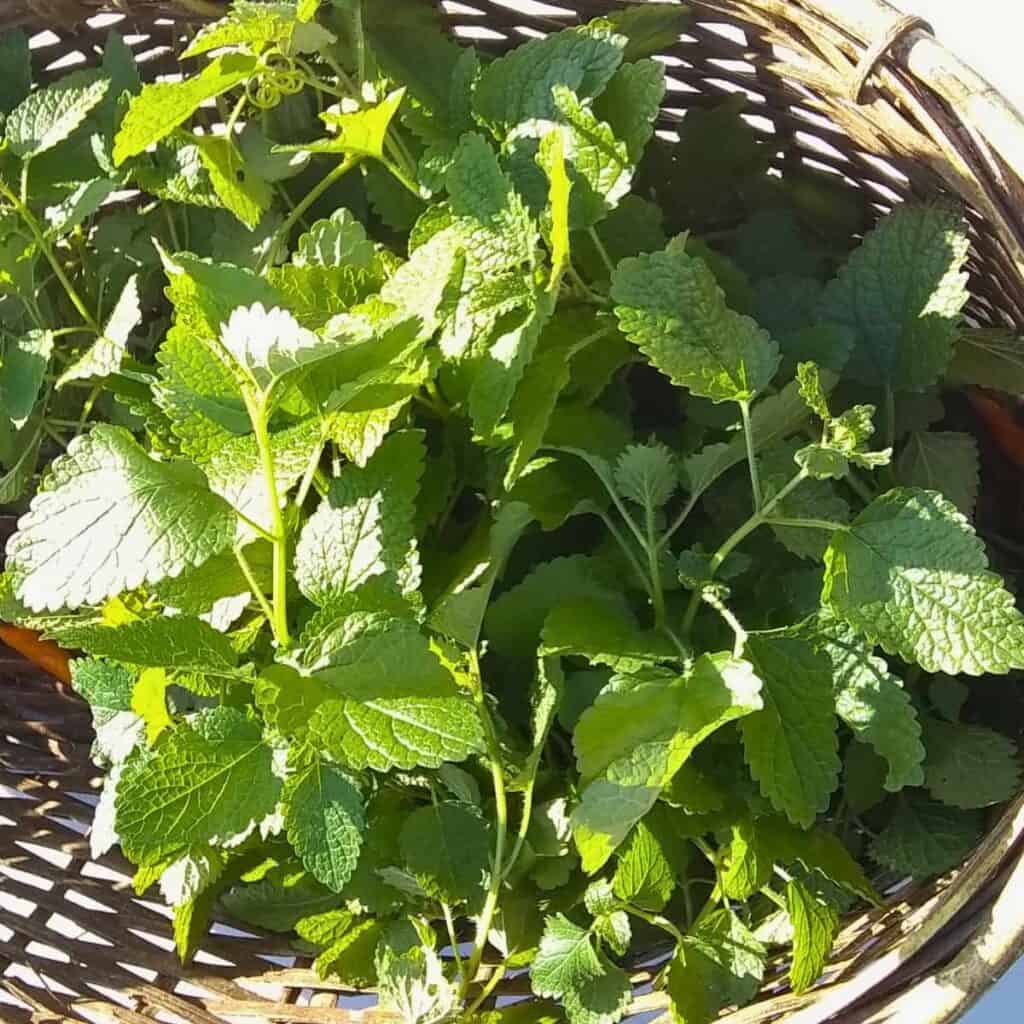
The best time of the day to harvest herbs for any reason, but especially for making medicinal preparations, is normally during the morning after all the dew has dried up. This can be pretty early in the drier or windier parts of the country. I like to pick it around mid morning before it gets really hot outside.
Harvest lemon balm by cutting the fresh growth before the plant starts to flower.
How To make Lemon Balm Tincture
Equipment:
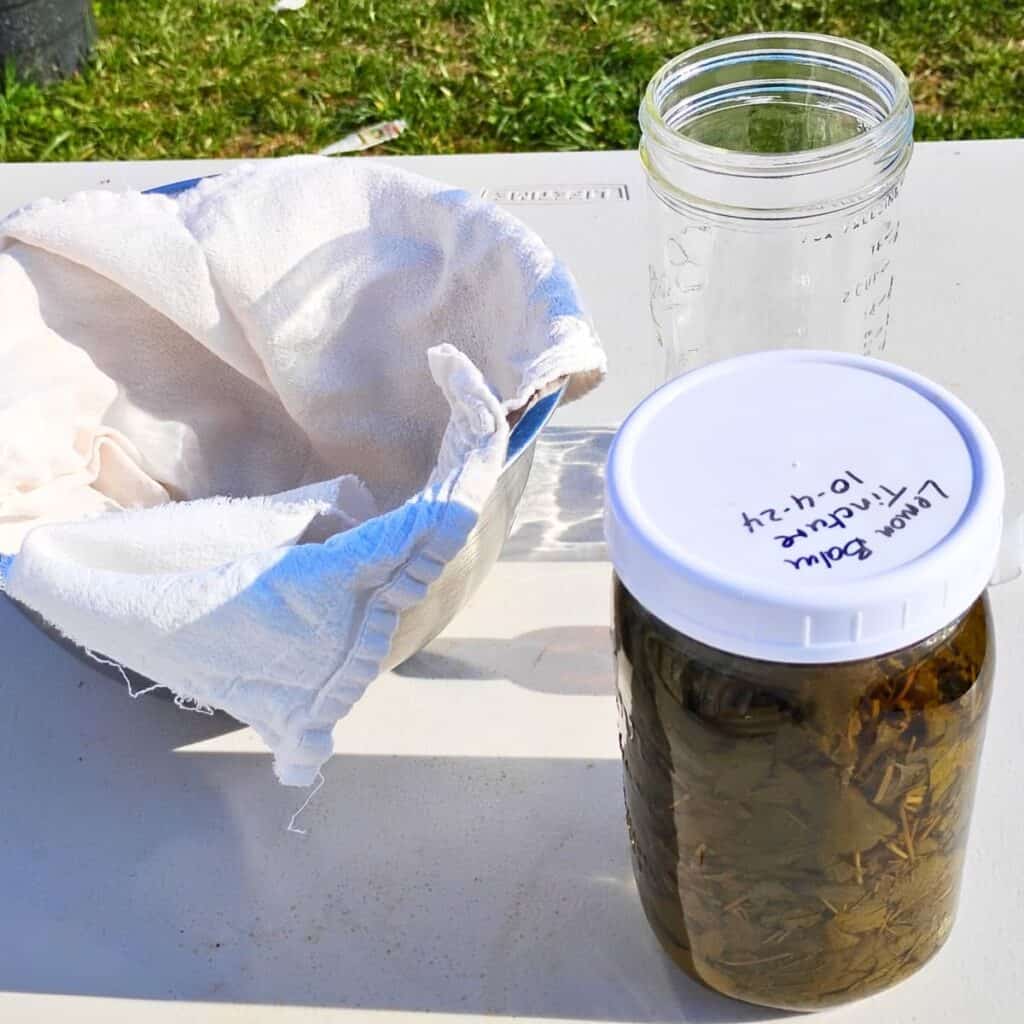
2 quart jars with tight fitting lids – I use a regular canning jar that I cover with the flat part of the 2-piece lid and then I use a plastic lid over that to seal it up. The plastic won’t corrode and, in my experience, it does better at pressing the flat metal disk down for a good seal than the regular metal band. You’ll need one for tincturing and one for storing the tincture.
Flowersack towel or nut milk bag – To strain the herbs out of the tincture when it’s finished
Bowl – for catching your strained tincture
Dropper bottle – For portioning out a part of your tincture
Ingredients:
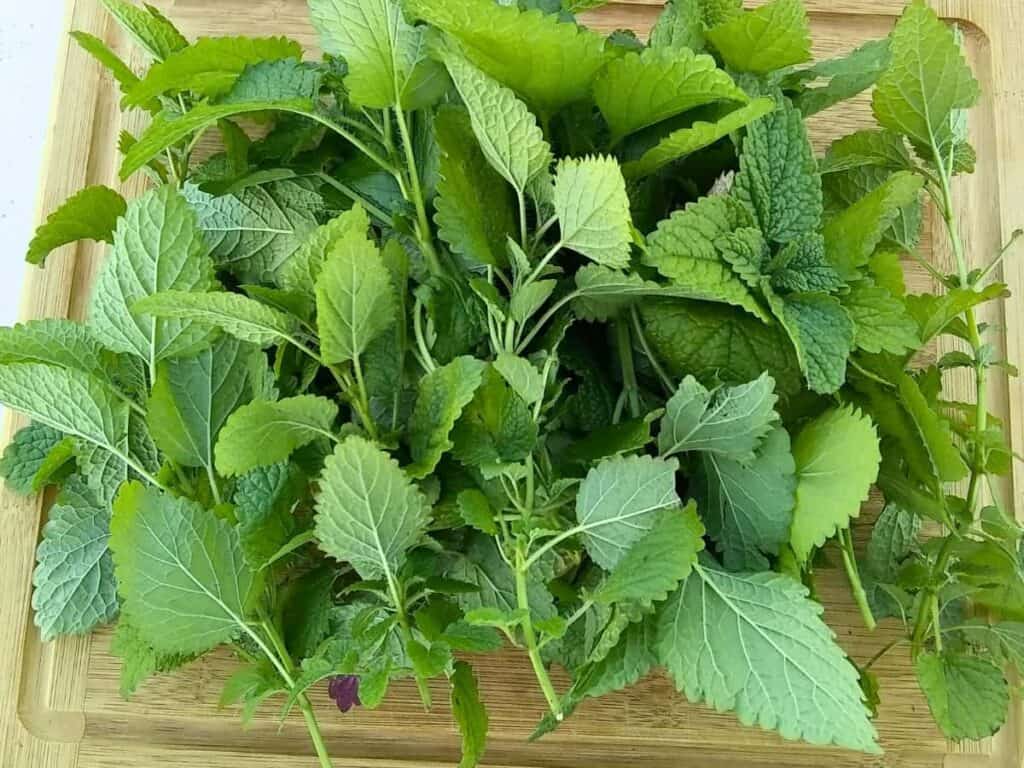
Fresh picked lemon balm – Pick your lemon balm after the dew dries in the morning if possible and before it flowers. Look for healthy growth and discard dried or discolored leaves.
750ml bottle 100 proof vodka – The cheapest vodka will work fine and 100 proof is ideal. If you cannot find 100 proof vodka, then go with 80 proof.
Instructions To Make Lemon Balm Tincture:
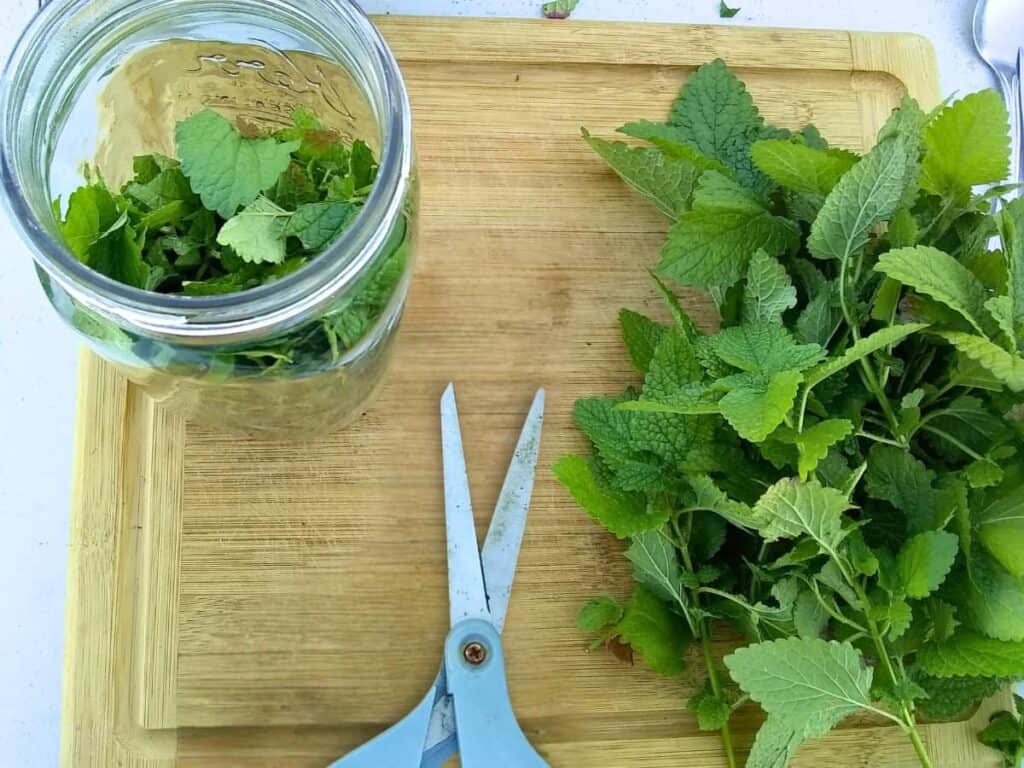
Roughly chop your lemon balm. I like to use scissors for chopping the lemon balm. Once it’s in the jar, I take my scissors and just chop it a little more right inside the jar.
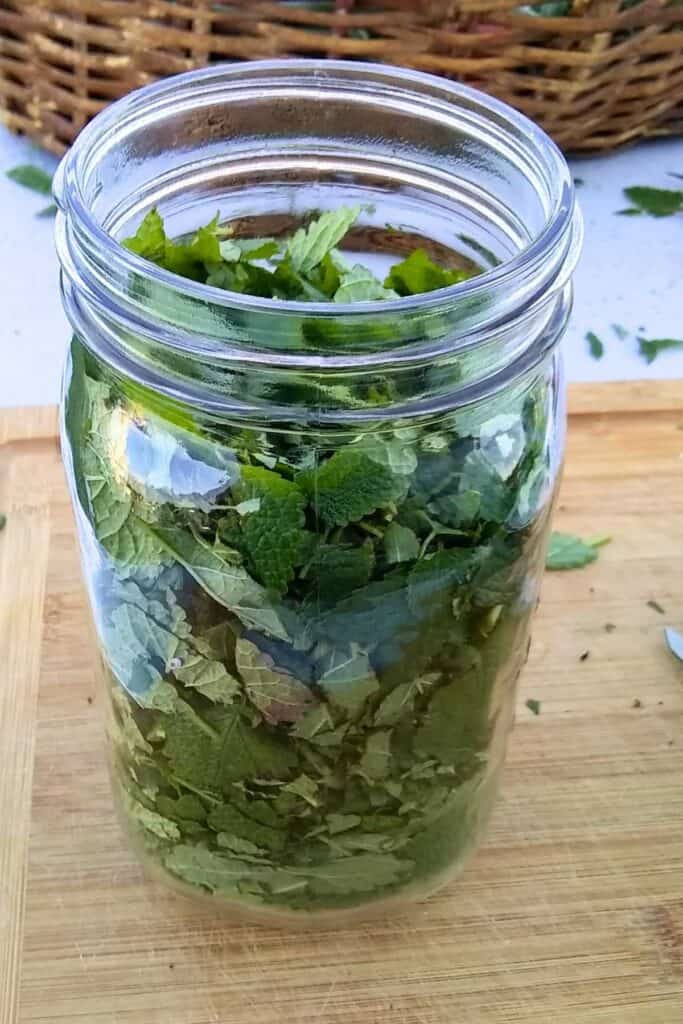
Fill a quart jar with the herb until it is full. Fill it well, but don’t pack it in.
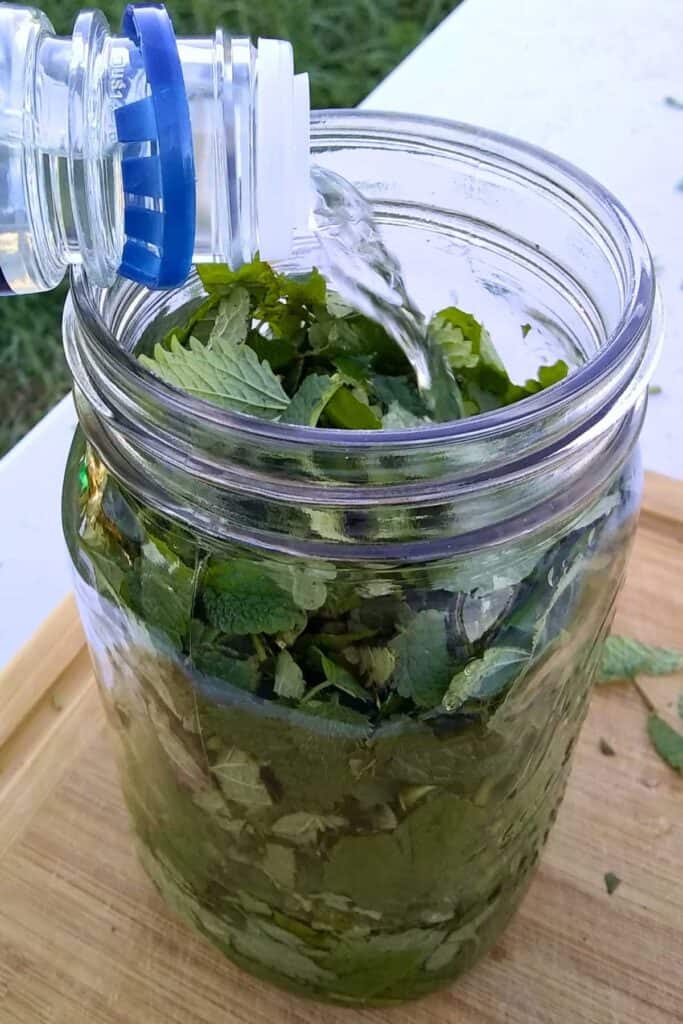
Now fill your jar to the very top with the vodka.
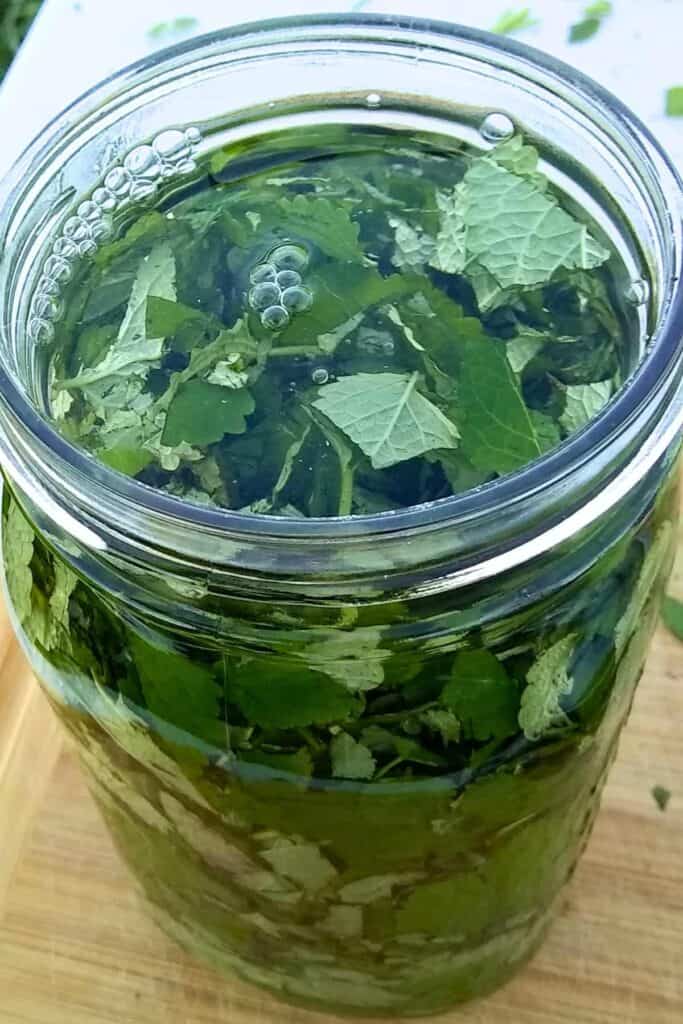
I could have added a little more, it’s best to fill it almost right to the rim.
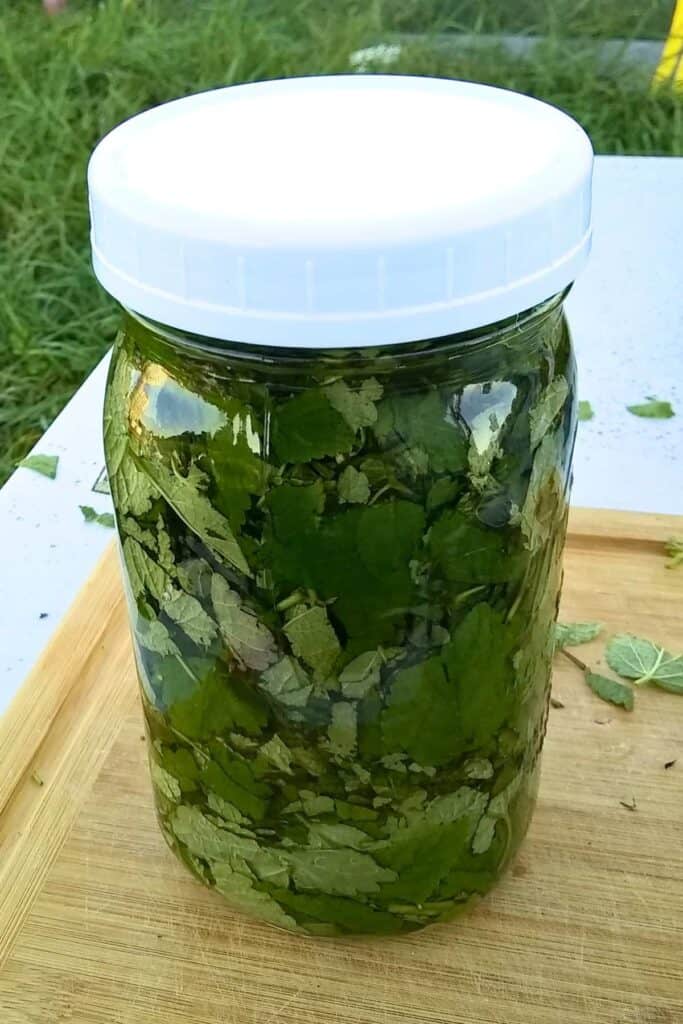
Tightly seal with the lid and give it a shake.
Set it into a dark corner to macerate for the next 6-8 weeks.
It’s a good idea to shake it a few times during the first week or so, but if you forget it that’s ok too.
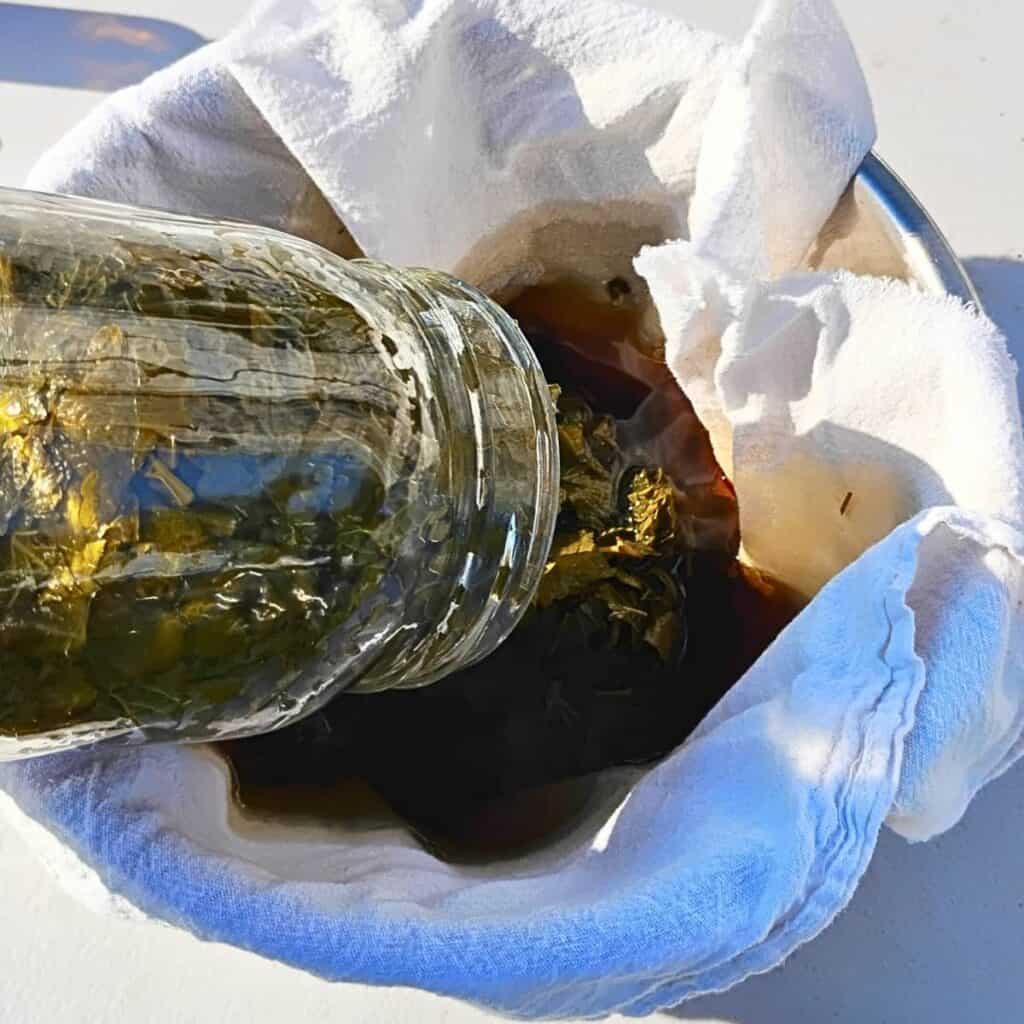
After 6-8 weeks, strain your tincture by placing a flowersack towel or butter muslin into a bowl and pour the tincture contents into it.
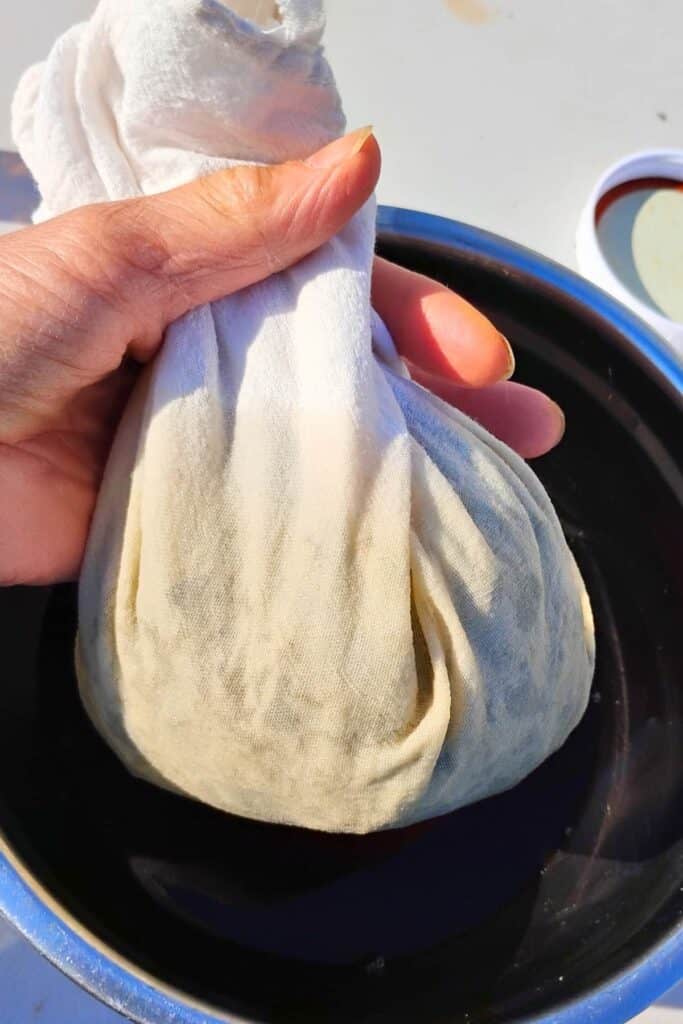
Grab the corners of the cloth and bag up the solid contents.
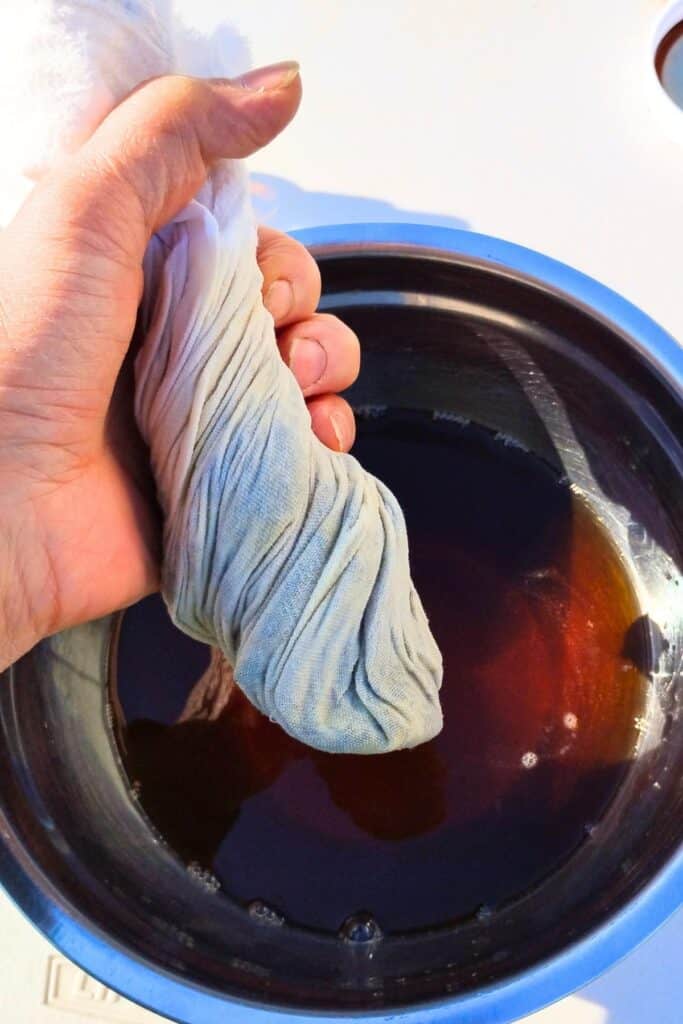
Then twist and squeeze this bag to extract as much of the liquid as possible.
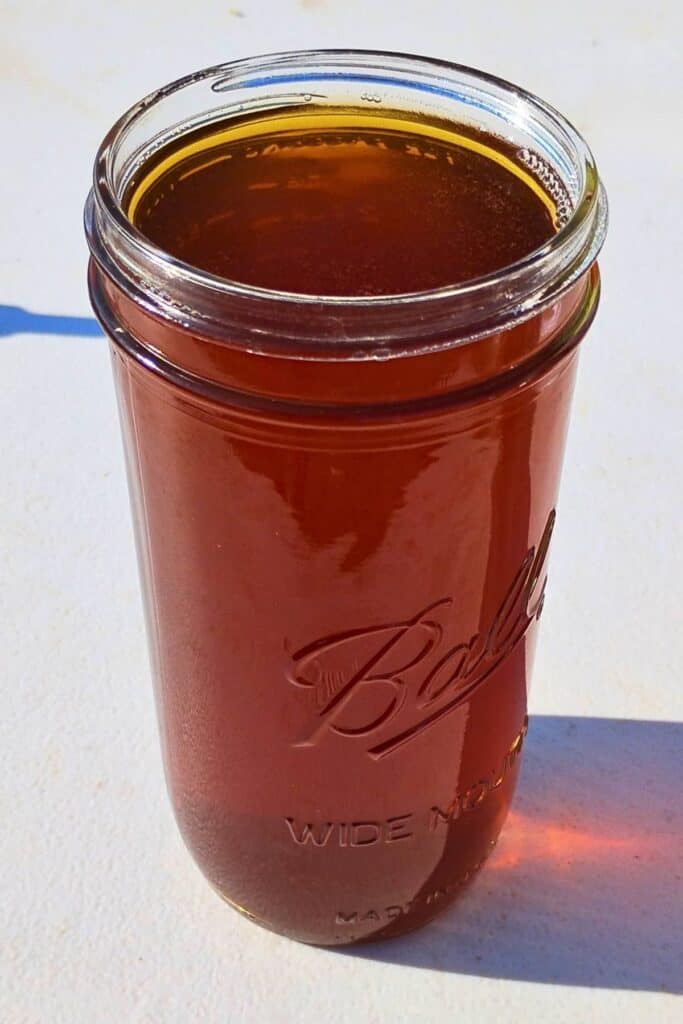
Toss the lemon balm leaves into the compost and pour the liquid into a storage jar. An amber colored jar is ideal, but you can use a regular canning jar and keep the tincture well sealed in a dark spot, such as a cupboard. Or take an old sock and pull it over the jar to keep the light out.
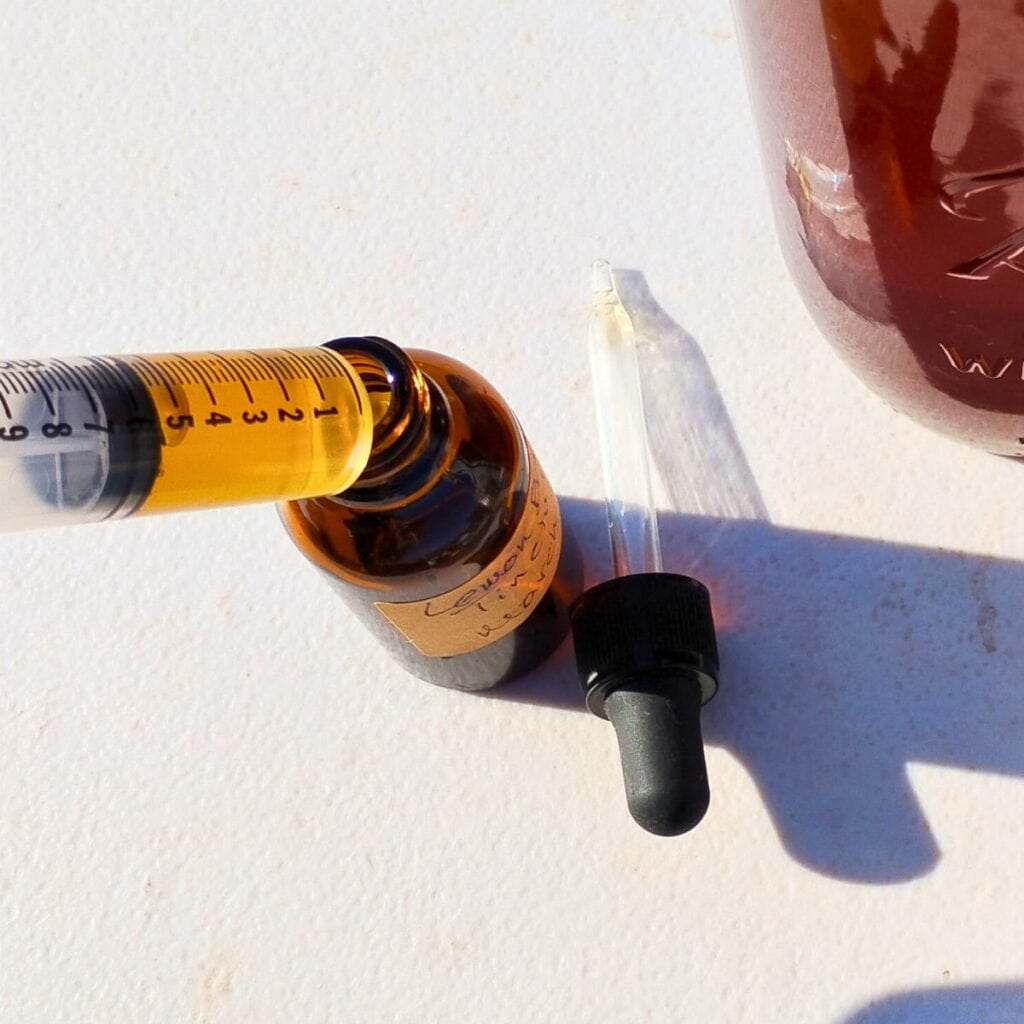
If you want to use this tincture right away, you can fill some into a dropper bottle. The best way to transfer the tincture into that tiny bottle is with a syringe without the needle. It’s makes this easy without spilling any.
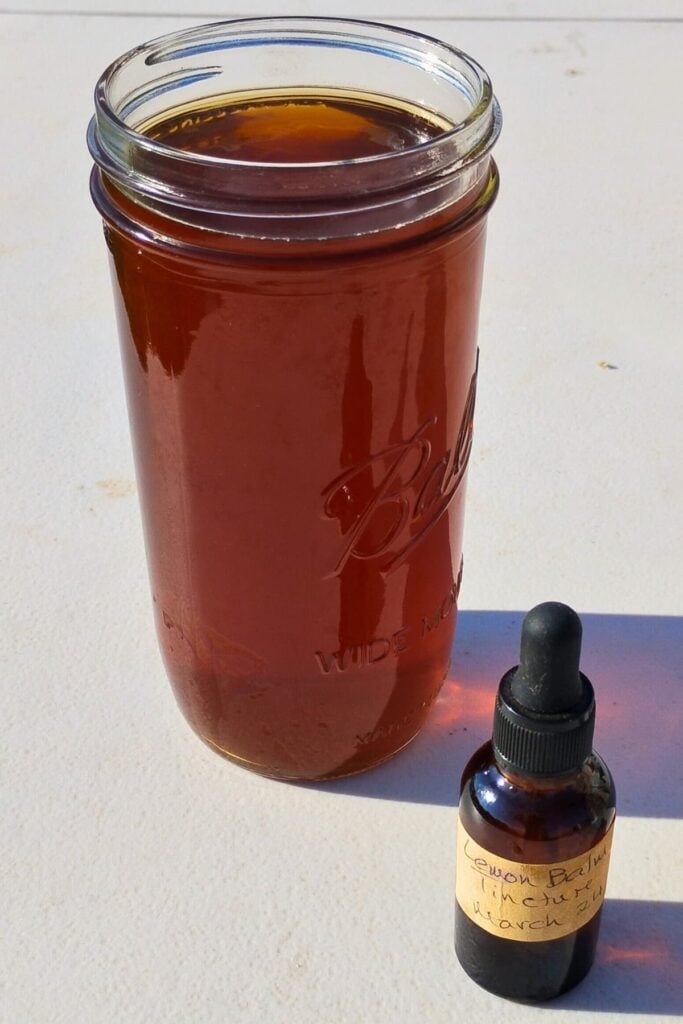
But don’t store the tincture in a dropper bottle for long term. The alcohol can evaporate through the rubber top and this can ruin your tincture.
So keep it in a well sealed jar instead and only use the dropper bottle for when you are actively taking the medicine. It’s ok to keep it in dropper bottles for several months though.
How To Use A Lemon Balm Tincture
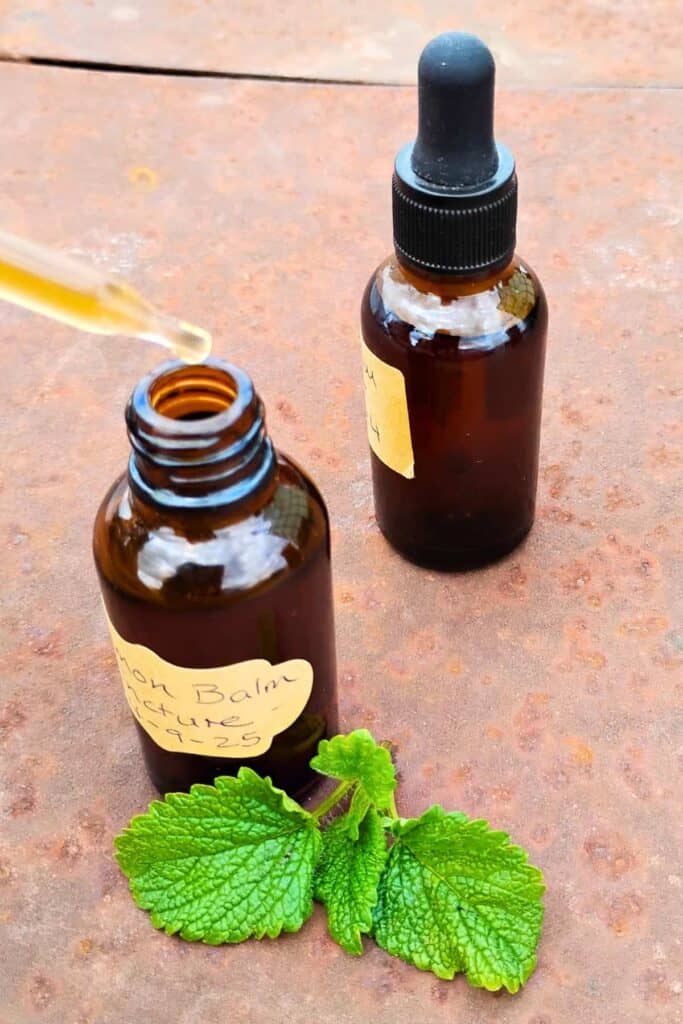
The quickest way to get a benefit from your tincture is by placing it under your tongue. Just squirt a few drops or a dropperful under your tongue and keep it there for a bit. Another way you can take it is in hot or cold water, tea, or juice.
Update: It is common practice to take tinctures under the tongue for faster action, higher absorbance, and better utilization of the active compounds. So this is one recommended way to take tinctures if you need it to work quickly. But please note that for long term use, you should not continue to take any tincture under your tongue to avoid damaging the tissue there. For continued use, dilute the the tincture in some water.
Dosage for herbs in general is 10-30 drops 3 times a day. A fully loaded dropper is fashioned so that it contains 20 drops, no matter what size bottle you use. You can start with a small amount to make sure you’re not allergic or have adverse reactions. Increase if necessary, but often smaller doses work just as well.
Your question answered:
Can I make this tincture without alcohol?
Yes you can. Alcohol is the most efficient at extracting all the benefits of lemon balm and it will have the longest shelf life. However, if you can’t have alcohol or if you are making this for young children, you can make this tincture with either vinegar or food grade glycerin.
Glycerin will make a very sweet tincture, and in the case of lemon balm, that will actually make it taste super delicious. But there are some properties that alcohol is better at extracting than either vinegar or glycerin. If you want the full benefit of this tincture I recommend using alcohol.
One thing you can do to reduce alcohol in your tincture dose is to add a dropper full of the alcohol tincture to a hot beverage and let it sit for a few minutes, which will cause most of the alcohol to evaporate. So you’re getting just a minute amount.
If you are using glycerin or vinegar, follow the recipe exactly with your chosen solvent. Let it extract for a full 8 weeks rather than 6 weeks. Shelf life is only about a year for glycerin or vinegar extracts. So keep that in mind when figuring the amount you need.
How long does lemon balm tincture keep?
The alcohol based tincture will keep at least 5 years. Alcohol tinctures won’t go bad, but if you didn’t store the tincture in a dark area, it might lose some of it’s potency. And if your jar is not sealed properly, the alcohol can possibly evaporate over time.
If you find an ancient tincture in your cupboard 10 years from now, it is most likely still good, just give it a look and smell and taste a tiny drop. If you can taste the alcohol, it should be fine.
Glycerin and vinegar tinctures should be replaced every year.
I Think You Will Love Your Lemon Balm Tincture
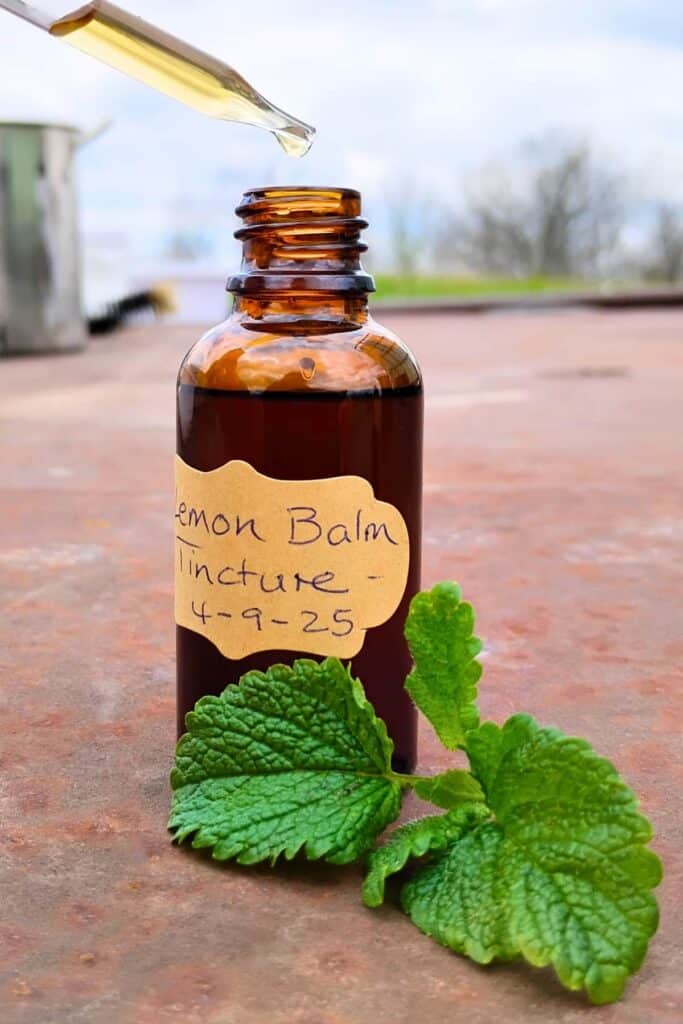
When you first taste lemon balm tincture, you might be surprised at how lovely it tastes. It’s like a lemon explosion in your mouth. Super tasty. And then you get so many health benefits packed into this little bottle. It’s great to have this in your purse when you’re away from home too. I like to take some about half an hour before I go to bed so my mind settles down and I can relax enough to fall asleep. And I like it throughout the day when I’m stressed out or when I get a cold sore.
I’d love to hear your thoughts about lemon balm tincture, and if you like this recipe, I’d be thrilled to get a ⭐⭐⭐⭐⭐ rating! 😀And you can ask me in the comment section if you have any questions.
If you would like to get notified whenever I add more content on herbs and their uses, as well as other gardening articles and herbal recipes please subscribe to my Food For Life Garden Newsletter.
More Content Like This
Make A Lemon Balm Salve – Benefits of lemon balm and how to make a salve for cold sores, bug repellant, bug bite relief and more.
Purple Dead Nettle Tincture – Capture the many health benefits of purple dead nettles in a tincture for year round use.
Turmeric Tincture Recipe – Make your own effective turmeric supplement, that is convenient to use and keep with you when you’re not home. A potent extract of the whole turmeric root.
Black Walnut Tincture – Black walnut has been used as a deworming tincture for a long time. Make your own with my recipe. I like to use it as part of my goat deworming routine with great results so far.
25 Essential Herbs To Plant – Start your home apothecary garden with these 25 powerful allies for your health. Learn their benefits, how to grow them and where to source them.
Homemade Apple Cider Vinegar – This lovely vinegar is made from apple scraps, not the actual apple cider. But it is just as effective, easier to make and uses all those leftover apple scraps or ugly apples.
Switchel Recipe – A refreshing electrolyte drink for hydration during summer activities.
Prepared and Fermented Horseradish – Make your own prepared horseradish with homemade vinegar or ferment it. Bonus recipe: horseradish tincture. Great for digestion and sinus infections.
Fire Cider Recipe – Get your fire cider recipe and make this tonic to be ready for cold and flu season!
Fermented Ginger Honey – Keep this potent fermented health food on hand. Use the powers of Ginger and Honey in a tasty syrup form that you’ll love.
Health benefits of ginger beer – Learn all about the awesomeness of ginger and its health benefits.
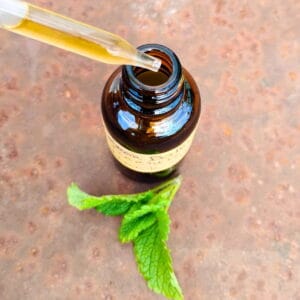
Lemon Balm Tincture Recipe
Equipment
- 2 quart jars with tight fitting lids – one for tincturing and one for storage
- flowersack towels or nut milk bag – for straining your tincture
- Bowl – to catch the tincture after straining
- Dropper bottle – for dosing the tincture.
Ingredients
- bunch Fresh picked lemon balm
- 750 ml bottle 100 proof vodka 100 proof is ideal, but 80 proof will work too.
Instructions
- Roughly chop or just tear your lemon balm into pieces.
- Fill your quart jar with the herbs until it is full. Fill it well, but don't compress it.
- Fill your jar to the very top with the vodka.
- Tightly seal with the lid and give it a shake.
- Set it into a dark corner to macerate for the next 6-8 weeks.
- It’s a good idea to shake it a few times during the first week or so, but if you forget it that’s ok too.
- After 6-8 weeks, strain your tincture by placing a flowersack towel or butter muslin into a bowl, pour the tincture contents into it, grab the corners of the towel and bag up the solid contents. Then twist and squeeze this bag to extract as much of the liquid as possible.
- Toss the lemon balm leaves into the compost and pour the extract into a storage jar. An amber colored jar is ideal, but you can use a regular canning jar and keep the tincture well sealed in a dark spot, such as a cupboard. Or take an old sock and pull it over the jar to keep the light out.
- If you want to use this tincture right away, you can fill some into a dropper bottle. But don't store the tincture in it for long term. The alcohol can evaporate through the rubber top and this can ruin your tincture. So keep it in a well sealed jar instead and only use the dropper bottle for when you are actively taking the tincture. It's ok to keep in dropper bottles for several months though.
How To use Lemon Balm Tincture
- The quickest way to get a benefit from your tincture is by using it under your tongue. Just squirt a few drops or a dropperful under your tongue a few times a day and keep it there for a bit. Another way to take it is in hot or cold water, tea, or juice.
- Dosage for herbs in general is 10-30 drops 3 times a day. A dropperful contains 20 drops. You can start with a small amount to make sure you’re not allergic or have adverse reactions. Increase if necessary, but often smaller doses work just as well.
Notes
Can I make this tincture without alcohol?
Yes you can. Alcohol is the most efficient at extracting all the benefits of lemon balm and it will have the longest shelf life. However, if you can’t have alcohol or if you are making this for young children, you can make this tincture with either vinegar or glycerin. Glycerin will make it very sweet, and in the case of lemon balm, that will make it tasted super delicious. But there are some properties that alcohol is better at extracting than either vinegar or glycerin. If you want the full benefit of this tincture I recommend using alcohol. One option you have when using alcohol is to add a dropperful of the alcohol tincture to a hot beverage and let it sit for a few minutes, which will cause most of the alcohol to evaporate. So you’re getting just a minute amount. If you are using glycerin or vinegar, follow the exact recipe and just fill the jar with your chosen solvent. Let it extract for a full 8 weeks rather than 6 weeks. Shelf life is about a year for glycerin or vinegar extracts. So keep that in mind when figuring the amount you need.How long does lemon balm tincture keep?
The alcohol based tincture will keep at least 5 years. Alcohol tinctures won’t go bad, but if you didn’t store the tincture in a dark area, it might lose some of it’s potency. And if your jar is not sealed well, the alcohol can possibly evaporate over time. If you find an ancient tincture 10 years from now, it might still be good, just give it a look and smell and taste a tiny drop. If you can taste the alcohol, it should be fine. Glycerin and vinegar tinctures should be replaced every year.I Think You Will Love Your Lemon Balm Tincture
When you first taste lemon balm tincture, you might be surprised at how lovely it tastes. It’s like a tiny lemon explosion in your mouth. Super tasty. And then you get so many health benefits packed into this little bottle. It’s great to have this in your purse when you’re on the go and you get overwhelmed and anxious, or you’re facing an exam and need to stay calm and focused. I like to take some about half an hour before I go to bed so my mind settles down and I can relax enough to fall asleep.Pin This Recipe For Later
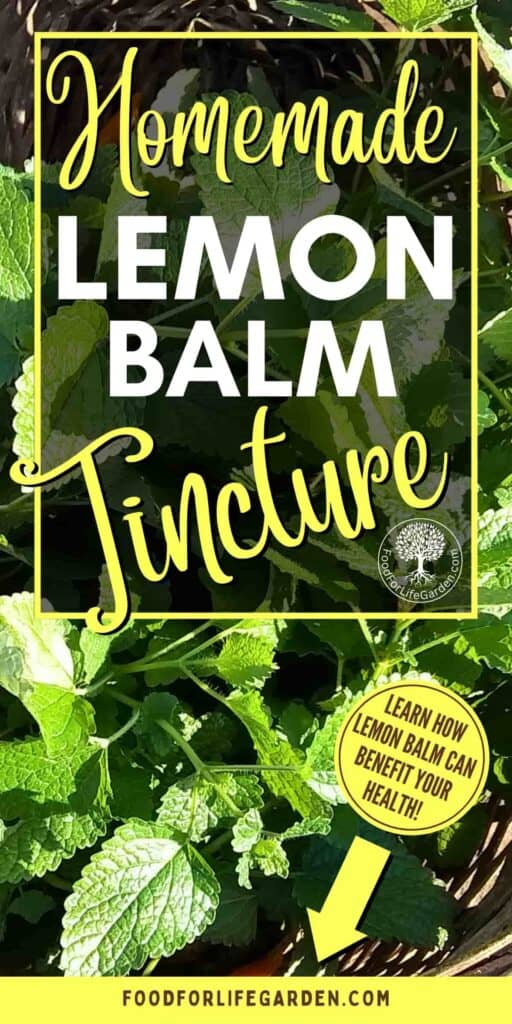
Shop This Post
Glycerin
Flour sack towels
Organic flour sack towels
Nut milk bag
Dropper bottles
Nitrile gloves
Butter muslin type cheesecloth
Books:
Alchemy Of Herbs, Rosalee de la Forȇt,
Medicinal Herbs, Rosemary Gladstar
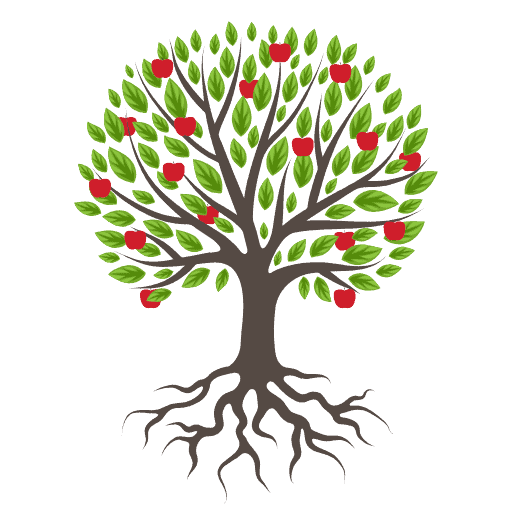
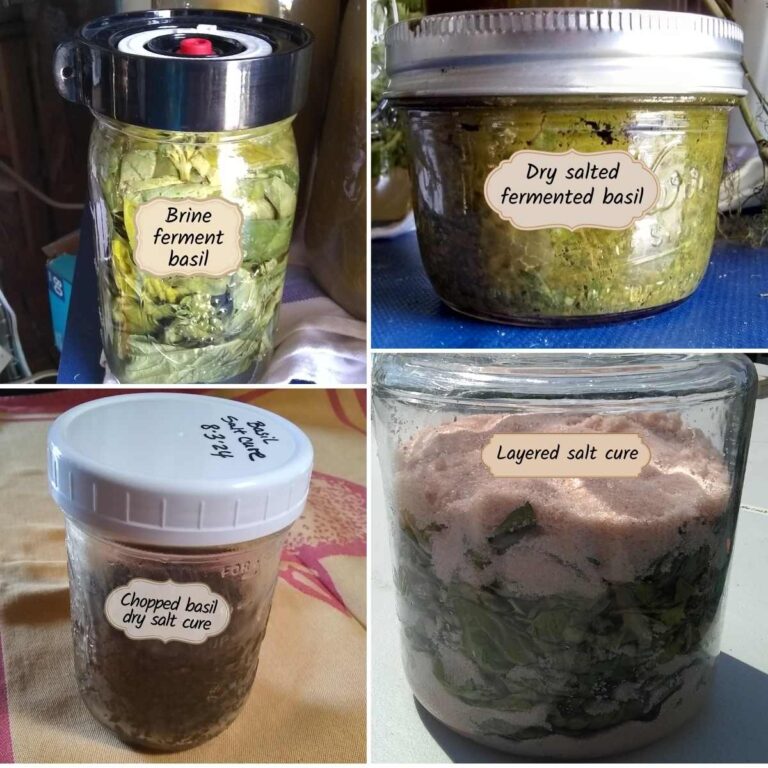
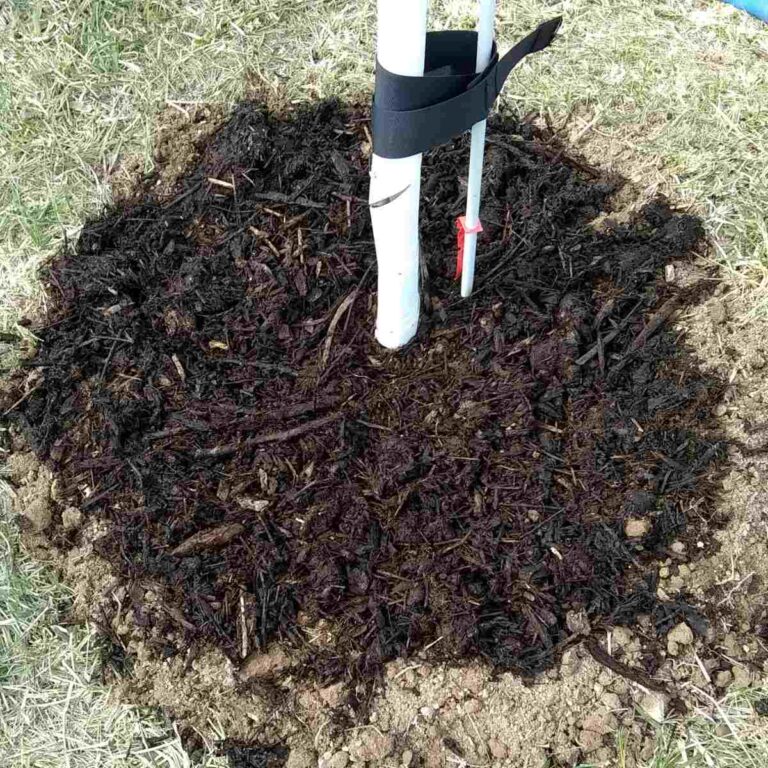
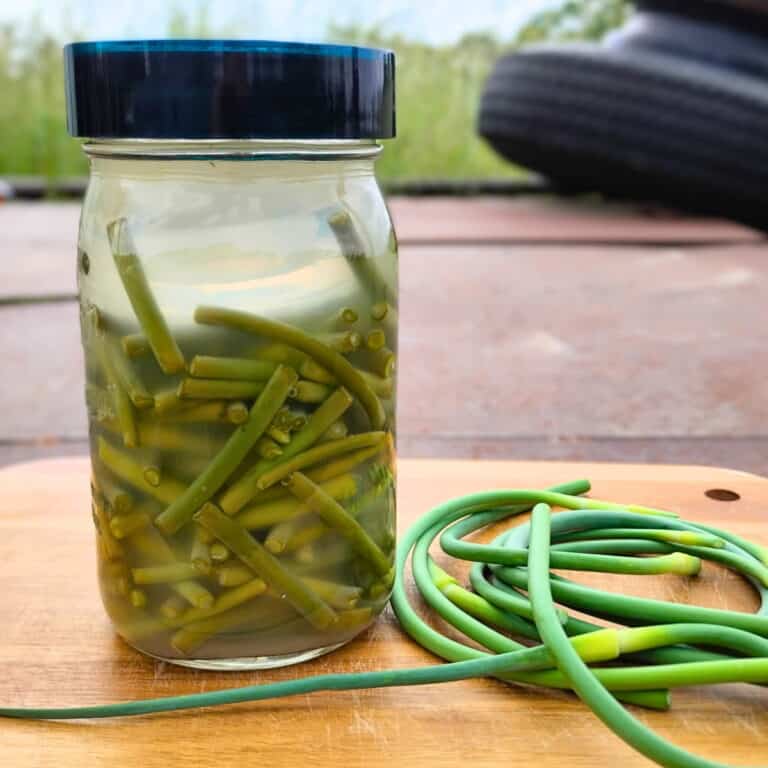
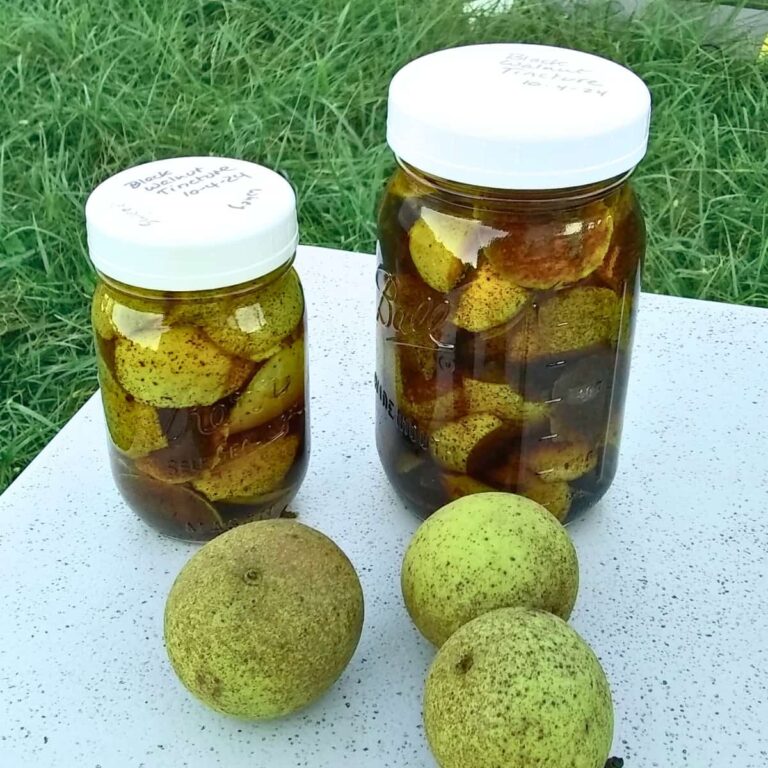
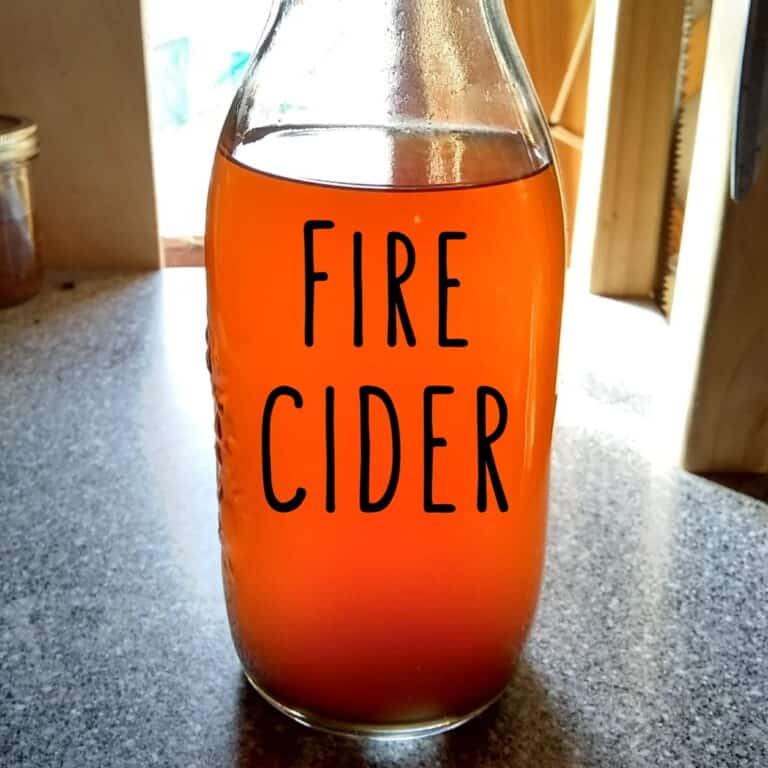
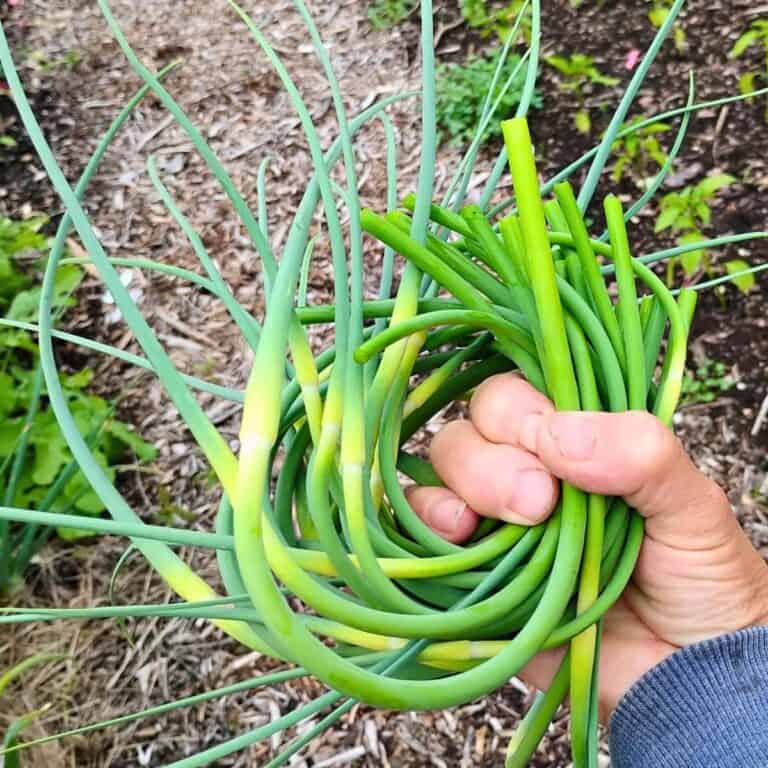
You’ll love the ease and convenience of having a lemon balm tincture on hand. Lemon balm is a gentle but powerful herbs that has so many wonderful benefits. Feel free to ask any questions you may have right here in the comments.
This is exemplary information. I am looking forward to using it!
Wonderful! Straight forward instructions & great tips. Thank you!
Thank you so much, Jenni, I appreciate your feedback!
Hey Megan, I’m so glad you find this helpful! I’m excited you want to make this tincture. I’d love to hear how it turned out!
What a great post about Lemon Balm! We love making tinctures, and will have to do this one!
That’s awesome! I think you will really love this one!
You’re a wealth of information. I want to learn about tinctures and feel overwhelmed researching it. You’ve made this easier to understand. Thanks for helping grow confidence.
You’re very welcome, Hayley. I’m so glad that you find this helpful!
Thank you for such helpful information! I’m excited to try this. And I love your website too!
Thank you for saying so, I appreciate your feedback. And I think you’ll love the tincture!
This guude for a lemon balm tincture is pure gold! Your guudes are so helpful-heading to my seeds to grab my lemon balm & make this!🤩
haha, great! And I’m glad if you find this helpful!
Great recipes, will have to try this one for sure as I love using lemon balm for myself and my kids 😉
Lemon balm is so awesome!
Totally going to make this when my lemon balm grows back this year!!
Awesome! Mine is starting to show some growth. Won’t be long before it’s harvest time again!
Wow! Such good info! I can’t wait make some!
I’m so glad you liked this. I’m sure you’ll totally love to have lemon balm tincture.
Great article!
Are lemon balm plants full sun or partial sun plants?
Can you plant them even now (end of spring type of heat here already?) or it is too late?
Hey Ophelie! Thanks so much for your comment. I should have included that bit about Lemon balm, thank you for asking. Lemon balm can take full sun but in hotter climates it would prefer some partial shade, especially during the hotter part of the day. And yes, you can plant them once the frost has passed. If you get a plant from the nursery, this is a great time to plant it. If you start it from seed, you can try to sow it outside, but I prefer to start it indoors, since it takes a while to get growing and it needs to stay moist. So no, it’s not too late!
I feel like I can smell this from just thinking about it! Love a good home remedy. I’ll have to try this!
Haha, yes, lemon balm does have a distinct odor, that’s for sure. And this is such a great home remedy, I think you’ll be very happy having this in your home apothecary!
Very straightforward, thank you!
Thank you so much for stopping by here and for your comment. I appreciate it!
High proof alcohol has no business going directly under the tongue. It can damage the tissue. Take a sip of water, then, with the water in your mouth, squirt the tincture into your mouth.
Hi Dawn, sorry for the long delay on a response. But thank you for sharing, and your concern is a valid one! This tincture is effectively less than 50% alcohol, since it is made with fresh herbs, which have a high water content. So this tincture is not considered high proof and is in fact diluted. I do not advocate using any alcohol higher than 50% for making tinctures. And yes, alcohol can be damaging to the tissue. If you are using tinctures regularly, you can certainly dilute them. It is common practice to take tinctures under the tongue for faster action, higher absorbance, and better utilization of the active compounds. So this is one recommended way to take tinctures for several reasons. But there are always two sides to one coin. And yes, it is definitely fine to dilute the tincture if you take it regularly to avoid irritating the tissues. I will revise my entry and emphasize that for ongoing use, it is best to take this tincture diluted in water or another liquid. Thank you for pointing out this important detail.
What are the properties lost when using glycerine? I want to be able to give this to my child but want to make sure I’m not missing out on something he needs. Thanks!
Hey Sara, Thanks so much for visiting and for your comment. Glycerites (extracts made with glycerine) tend to be a weaker extract of the herb, since glycerine only extracts water soluble compounds while alcohol is great at extracting the full spectrum of compounds, especially those that are more oil-soluble or resinous. Alcohol is avoided for many reasons, but it should be noted that Glycerine, a manufactured sugar alcohol, can also be irritating for some people. Here is a link if you’re interested in using glycerine for extracts. They explain glycerine in more detail too. I prefer alcohol for its ability to extract more benefits, but when making tinctures for children, glycerine is a great option because it is sweet and kids will likely prefer that. Glycerites should also be refrigerated for storage since glycerine does not preserve herbs as well. So you’ll have to weigh the pros and cons for yourself when making your extract. Here are a few ideas: You could also mix half and half to get the full spectrum extract but less of the alcohol content if that is your concern. And because herbal tinctures can be very effective in small doses, you could consider making an alcohol extraction for full benefits and dose with just a drop or two, instead of a dropperful, well diluted in some hot water to evaporate some more of the alcohol. Hope this helps.😊
Can you take if on blood thinners?
Hey Peggy, sorry for taking so long to reply! I would be very cautious to take any herbs or supplements if you’re on blood thinners and suggest that you speak with your health care provider about it. I am not a medical professional and cannot give you this advice. I do appreciate your visit here and hope you’ll find the answer you need.